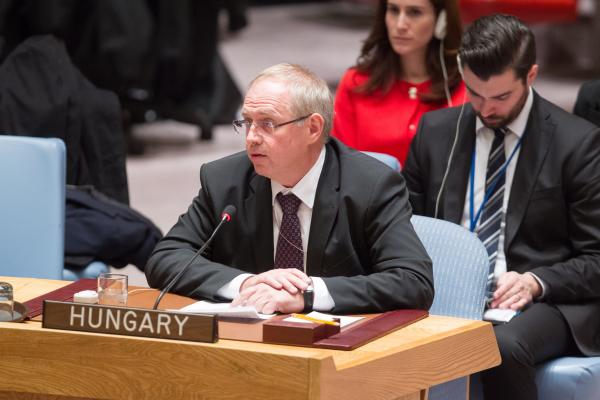Amid added urgency fuelled by last week’s terrorist attacks in Beirut and Paris, Security Council held its first open debate on security, development and the root causes of conflicts on 17 November 2015. Member States have underlined the fundamental link between security and development and the important role to be played by the Council in the field of conflict prevention.

Ban Ki-moon stressed that to tackle today’s conflicts and violent extremism, actions must integrate the interdependent pillars of the work of the United Nations: peace, development and human rights.
Member States have underscored the need to address the root causes of conflicts, and the crucial importance of the implementation of the 2030 Agenda for Sustainable Development, which calls for achieving peaceful and inclusive societies, built on access to justice and accountable institutions. Recognizing the fundamental link between security and development, speakers called upon the Security Council to intensify its collaboration with the Peacebuilding Commission and also focus on prevention.
Ambassador Zsolt Hetesy, Deputy Permanent Representative of Hungary to the United Nations, underlined that while it is the responsibility of the Security Council to find and enforce political solutions, only sustainable development is capable of taking care of root causes that led or contributed to the conflicts. Ambassador Hetesy reaffirmed that without putting an end to the conflicts there is no solution for the current refugee crisis. Migration, on the other hand, is caused by different forms of unsustainability. By implementing Agenda 2030, the world can tackle economic, environmental, and social unsustainability, so irregular migration does not have to occur. Rather than reinforcing the division lines between UN organs, ever closer cooperation is needed to address today’s threats of integrated nature.
Please find Amb. Hetesy’s statement here.

